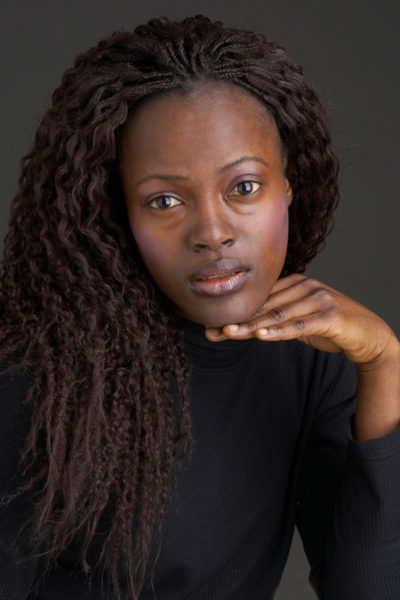Features
Busola Adedire: 4 Tips For Dealing with Unforgiveness
 I used to reserve a speech in my head for everyone who caused me some form of pain. Every now and then I would think about it, and sometimes I would cry. I remember I once wrote one of such ‘speeches’ out on a piece of paper which I later chucked away. When I think of demons, I think the one that lives inside of us is the most powerful. I tormented myself endlessly waiting for explanations and apologies,but my healing began the moment I wanted healing more than I wanted to breathe. I know of forgiveness because I am a Christian, but I did not know how to apply it in real life. It took me a health scare of severe emotional stress to put my life back in order.
I used to reserve a speech in my head for everyone who caused me some form of pain. Every now and then I would think about it, and sometimes I would cry. I remember I once wrote one of such ‘speeches’ out on a piece of paper which I later chucked away. When I think of demons, I think the one that lives inside of us is the most powerful. I tormented myself endlessly waiting for explanations and apologies,but my healing began the moment I wanted healing more than I wanted to breathe. I know of forgiveness because I am a Christian, but I did not know how to apply it in real life. It took me a health scare of severe emotional stress to put my life back in order.
Forgiveness is a lot; it is weighty, it is hard; yet, it is the strongest indicator of beauty and love. Though I am not a licenced therapist, I think my life experiences have qualified me as one who can speak on emotional healing.
The truth is you cannot enjoy life with unforgiveness and resentment in your heart. It does not matter whether you deserve the treatment you were given or not, you deserve peace. I remember someone asking Iyanla Vanzant ‘How do you forgive the UNFORGIVABLE?’ and she answered ‘Nothing is UNFORGIVABLE’. She was right! When you see life for what it is (brief and beautiful) you will understand that not every situation deserves your anger, and not everyone deserves your response. Your happiness and inner peace is 100 percent YOUR responsibility not somebody else’s so if you are struggling with forgiveness, here are four practical ways you can deal with it.
Admit It
You cannot change anything you are unwilling to confront, and this is the same for emotional pain. Repressing your emotions will have you dancing in circles and before you know it you will run into a brick wall (See my article on emotive repression). Your healing begins with embracing all the emotions associated with the situation i.e. anger, and sadness. Especially when it involves the people we love, we have to be careful not to abhor “faux forgiveness” which is insisting a wrongdoing is no big deal or that you’re over it when, in fact, you’re not. It does not matter how insignificant you think your feelings are, they only become healed through validation. It can be very hard to admit that someone you love and trust has wounded you but you have to learn to give your feelings a voice.
Move to the Decision Phase
A lot of people do not get to this stage as they are too preoccupied with denial. The decision phase is making a conscious decision to release bitterness and anger regardless of acknowledgement from the other party. Forgiveness does not necessarily mean reconciliation; it does not mean subjecting yourself to unkind treatment, neither does it excuse the other party from taking responsibility for their behaviour.
Look at Things From a Different Perspective
I read one quote which changed my perspective on human relationships. It says ‘Dear Human: You’ve got it all wrong. You didn’t come here to master unconditional love. That is where you came from and where you’ll return. You came here to learn personal love, universal love, messy love, sweaty love, crazy love, broken love, whole love infused with divinity, lived through the grace of stumbling. Demonstrated through the beauty of… messing up often. You didn’t come here to be perfect. You already are. You came here to be gorgeously human. Flawed and fabulous. And then to rise again into remembering. But unconditional love? Stop telling that story. Love, in truth, doesn’t need ANY other adjectives. It doesn’t require modifiers. It doesn’t require the condition of perfection. It only asks that you show up. And do your best. That you stay present and feel fully. That you shine and fly and laugh and cry and hurt and heal and fall and get back up and play and work and live and die as YOU. It’s enough. It’s plenty’. That changed everything for me.
People make mistakes and you cannot hold it against them for the rest of their lives. I also read it somewhere that events are in fact neutral. Our perception of events is what determines the meanings and responses we give them. This is an important principle. Stress is only a resistance created by our responses, by our need to control, justify or even understand an event. Learning not to judge events and situations is a great part of healing and forgiveness.
Reflect on the Situation
This is where you find your lessons. Perhaps, there are things you could have done differently, perhaps you needed to pay more attention to something, or perhaps the experience was intended for future use. I am certain that no life experience is wasted even if you don’t understand it. Your purpose in life is always connected to your deepest hurt.
Remember that the physical body falls apart because we emotionally fall apart. When we don’t care for the whole self, our physical body simply mirrors those effects. Over the course of time, emotions like unforgiveness, fear, anger and confusion does take a toll on the body.
Photo Credit: Dreamstime | Franz Pfluegl



















